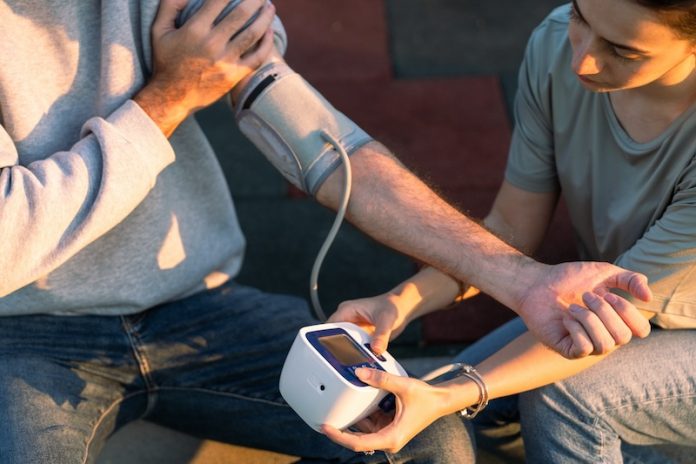
Scientists at the University of Miami have found that the lower number on a blood pressure reading—called diastolic blood pressure—may give important clues about a person’s risk for brain problems, such as memory loss, stroke, or falls.
Blood pressure is measured with two numbers. The top number is called systolic pressure. It measures how hard blood pushes against your arteries when your heart beats. The bottom number is called diastolic pressure. It shows how much pressure there is when your heart rests between beats.
Doctors usually focus more on the top number to check for heart disease. But this new study shows that the bottom number may also be important, especially when it comes to brain health.
Researchers looked at 1,205 people aged 50 and older. They checked their blood pressure and also took pictures of their brains using MRI scans. They were looking for small scars in the brain called white matter lesions.
These lesions can stop the brain from sending signals properly. People with more of these lesions are at higher risk of falling, having a stroke, or losing memory.
The study showed that people with lower diastolic blood pressure (below 80) had fewer white matter lesions. Those with higher diastolic pressure (above 90) had more of these brain scars.
Earlier studies have shown that high systolic pressure can narrow arteries and cause brain damage. But this study adds something new: diastolic pressure also plays a role, especially in parts of the brain that control thinking and memory.
White matter in the brain helps send messages that control movement, touch, and thoughts. If white matter gets damaged, these messages don’t get through properly. This can cause problems with balance, memory, and how we think.
According to the American Heart Association, 10–20% of people have white matter lesions by the time they are 60. Almost everyone over 90 has them. That’s why it’s important to find ways to prevent this kind of brain damage.
This study shows that checking diastolic pressure may help doctors find brain problems early. It’s especially helpful for finding a certain kind of brain lesion called periventricular white matter lesions, which are strongly linked to memory loss and thinking problems.
The brain gets blood from different arteries, and high blood pressure can affect each part in a different way. By learning how this works, doctors might be able to create better treatments to stop strokes and dementia before they start.
The researchers say it’s important to know your blood pressure numbers and talk to your doctor about what they mean and how to manage them.
The study was led by Michelle R. Caunca and published in the journal Stroke.
If you care about stroke, please read studies that diets high in flavonoids could help reduce stroke risk, and MIND diet could slow down cognitive decline after stroke.
For more health information, please see recent studies about antioxidants that could help reduce the risk of dementia, and tea and coffee may help lower your risk of stroke, dementia.
Copyright © 2025 Knowridge Science Report. All rights reserved.



